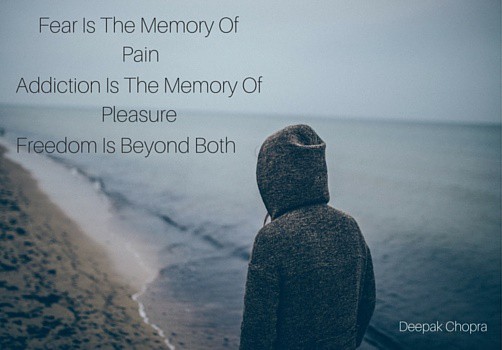It’s not difficult to become addicted but it’s quite difficult to come back from addiction. According to research, only about one in ten addicts are receiving any treatment, which means the remaining 90 percent are on track to remain in active addiction until it takes their lives. And it’s not that there aren’t enough recovery resources available to those in need since there are resources to appeal to essentially any need. There are a number of other reasons why people are reluctant to pursue recovery, including not wanting to identify themselves as being addicts and, therefore, at risk for discrimination, demonization, or even harassment.
Alternately, many people feel that traditional, clinical rehabilitation programs don’t address all of a person’s needs. In particular, they feel like alcohol and drug rehabs address the physical, mental, emotional, and sometimes the social effects of addiction. But what about the spiritual effects? Bill Wilson—founder of Alcoholics Anonymous and the twelve-step method in 1935—once famously asserted that people become addicted because they’re looking for God or for meaning or for some type of purpose at the bottom of a bottle or through drugs rather than from within or through faith. It was for this reason that Wilson created his spiritually-focused twelve-step method.
However, there are other great resources as well. In fact, there are a number of sobriety books that have proven to be assets to many people who wanted to achieve comprehensive recovery. The following are several such books that you might consider as you begin or progress in your recovery.
Mindful Recovery by Thomas Bien
In active addiction, alcohol and/or drugs become the center of a person’s life. Virtually his or her every waking moment is consumed either by seeking or consuming mind-altering substances. And then there are the times when the addict is intoxicated and times when he or she is experiencing withdrawals. This leaves very little time to consider one’s other needs, especially one’s spiritual needs.
Thomas Bien’s Mindful Recovery: A Spiritual Path to Healing From Addiction makes a number of really thoughtful, compelling observations. The book revolves around Bien’s belief that it’s a person’s spirituality, rather than pharmaceuticals or even sheer strength of will, that determines one’s success in recovery. Additionally, Bien offers a version of the twelve-step method that incorporates Buddhist ideals that enhance the spiritual aspects of Alcoholics Anonymous and its numerous derivative groups.
Freedom From Addiction by Deepak Chopra
Deepak Chopra is widely considered to be an expert in holistic medicine, and that knowledge is put to great use in this compelling book called Freedom From Addiction: The Chopra Center Method for Overcoming Destructive Habits. According to Chopra, a thirst for spirituality is at the center of all addictions; he also posits that all addicts are on a quest for spiritual enlightenment in some way although they’re not usually aware of this. When addicts use alcohol and drugs to become intoxicated, they’re essentially forcing themselves to forget these spiritual needs. After becoming addicted, it becomes difficult to find an alternative to alcohol and drugs that can offer them comparable nourishment in terms of the love, self-esteem, safety, and an overall sense of meaning and fulfillment. Therefore, Chopra offers his Chopra Center Method, which involves an Ayurvedic diet, yoga asanas, and mindfulness meditation that can help a person to clear the effects of past emotional traumas. Critics sometimes consider Chopra’s method a bit difficult for individuals to ascribe to, especially when they’re in the throes of severe, long-term addiction; but it’s also proven to be an accessible method that’s ideal for people whose addictions are not extremely severe.

Gifts of Sobriety by Barbara S. Cole
Many addicts find it difficult to motivate themselves into recovery. They realize they need to get sober but taking that first step—and embracing the prospect of having to get to the other side of withdrawal—is intimidating. One of the things that is so compelling about Barbara S. Cole’s Gifts of Sobriety: When the Promises of Recovery Come True is that Cole outlines how addicts can source strength of will and conviction from the millions and millions of addicts who have successfully achieved recovery for themselves. Additionally, Cole guides readers’ attentions to the promise of prosperity, health, and happiness that lie just on the other side of the fence that separates an addict from a recovering addict.
Recovering Joy: A Mindful Life After Addiction by Kevin Griffin
Becoming an addict doesn’t require much of a commitment in the traditional sense. In fact, there’s an argument to be made that becoming addicted occurs due to a lack of commitment. Conversely, choosing to overcome one’s addiction requires a huge amount of commitment. When addicts are in recovery, they often find themselves feeling discouraged; whether it’s the intense flood of seemingly overwhelming emotions, strong cravings and urges to use that to threaten one’s sobriety, or because of some other difficulty, people in recovery often feel like they’re just moments away from reverting back into active addiction.
However, Kevin Griffin—author of Recovering Joy: A Mindful Life After Addiction—explains that people are much more capable than we often think. Griffin offers a number of ways for a recovering addict to cultivate a positive state of mind through mindfulness meditation, reflection, and self-assessment, providing a method with which a person can restore their core values, nurture healthy relationships, and find the unexpected joys in the recovery process.
Call Guardian Intensive Outpatient To Begin Your Recovery Journey
There’s no right or wrong way to overcome an addiction. To accommodate the diverse range of recovery needs, alcohol and drug treatment centers offer a breadth of therapeutic techniques and multiple program types. If you or someone you love would like to discuss the treatment options that are available, call Guardian IOP at 855-517-1871. We’re available day and night, ready to help you or a loved one return to a state of health and happiness. Don’t lose another moment to this lethal disease. A better, more fulfilling life is never more than a phone call away with Guardian Intensive Outpatient.




















